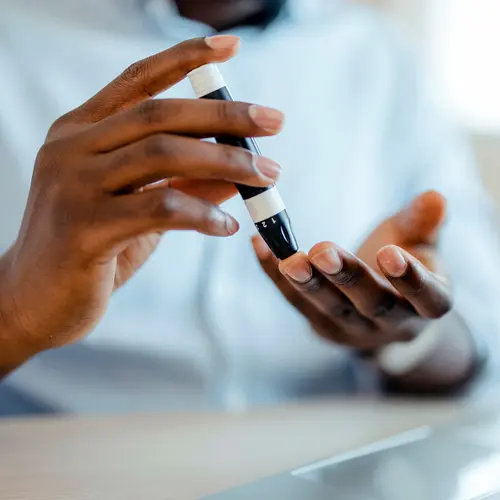The effects of your type 2 diabetes can make you eligible for disability benefits if you’re not able to work.
Not everyone who has diabetes qualifies. Even if you do, applying for benefits can be a long, complicated process.
What Are Disability Benefits?
There are two kinds:
Social Security Disability Insurance (SSDI). This type provides a monthly check if you can’t work because of health issues. How much you’ll get depends on how much you were making when you were employed.
To qualify, you must have worked at least 5 of the past 10 years.
Supplemental Security Income (SSI). This also provides a monthly check. But this program is for people who make less than a certain amount (this amount changes each year) and don’t have much in savings (less than $2,000 if you’re single or $3,000 if you’re married). You don’t have to have worked to get SSI benefits.
Children who don’t qualify for SSI may still be able to get Medicaid (a government-run health insurance program for folks with low incomes). The social services office in your state or county can give you more information.
How Do I Qualify?
You may be able to get disability benefits if:
- You aren’t able to control your diabetes.
- Serious health problems have come up because your diabetes is uncontrolled.
These problems need to be severe enough that your doctor thinks they'll last at least a year. The Social Security Administration (SSA) will decide if you qualify for benefits. That'll depend on how these conditions affect other parts of your body.
For example, hyperglycemia (when your blood sugar stays too high) can lead to something called diabetic ketoacidosis (DKA). It's a potentially life-threatening condition where your blood sugar and acid levels are too high. It can also damage your:
It may also lead to mood or eating disorders.
Your hyperglycemia can also become chronic. That can cause serious issues with your nerves or blood vessels, which can affect your:
It can also cause:
- Depression
- Anxiety
- Skin infections
- Blood flow issues that can lead to amputation
At the other extreme, hypoglycemia (when your blood sugar stays too low), can lead to seizures or affect your mental state.
If any of these keep you from working like you have, and you can’t hold any other job that fits your age, education, and experience, you may qualify for disability benefits.
How Do I Apply?
You can do it through the local Social Security Administration office or state agencies (called Disability Determination Services or DDS).
You can apply in person, over the phone, by mail, or online. DDS will get information from your doctors to decide if your diabetes qualifies as a disability.
If you don’t qualify, your case is kept on file in case you decide to appeal.
The process isn’t quick. It can take 3 to 5 months to get a decision, depending on how long it takes for DDS to get your medical records and other information they need.
It’s not unusual to be turned down the first time you apply. Up to 80% of first-time applications are rejected. If you appeal, it can take another 3 to 5 months to get a decision. If that appeal gets denied, you can appeal once more before an administrative law judge. That process can take as long as 2 years.
Should I Hire a Lawyer?
You can get through the application -- and appeal -- process without a lawyer. But appealing a rejection can be hard. So it can be helpful to have an attorney, especially one who specializes in this.
Protection and advocacy organizations can help you find a lawyer who will help you get through paperwork, get your medical records and other necessary information in order, and prepare you for your appeal hearing. They also can represent you in front of the judge.
The SSA must approve your attorney’s fee, and it’s only paid if you win the appeal. The fee is either 25% of the benefits you earned from the date of your original application through the date your case is decided or $6,000 -- whichever is lower.
You can find Protection and Advocacy organizations on the Social Security Administration's website. The American Bar Association also has information on its website.
How Long Will I Get Benefits?
If you’re approved and start getting a monthly check, your case eventually will be reviewed -- everyone’s is at some point. But if you’re not working and are still seeing a specialist for the same health issues, your benefits should continue. You won’t need a hearing of any kind.

